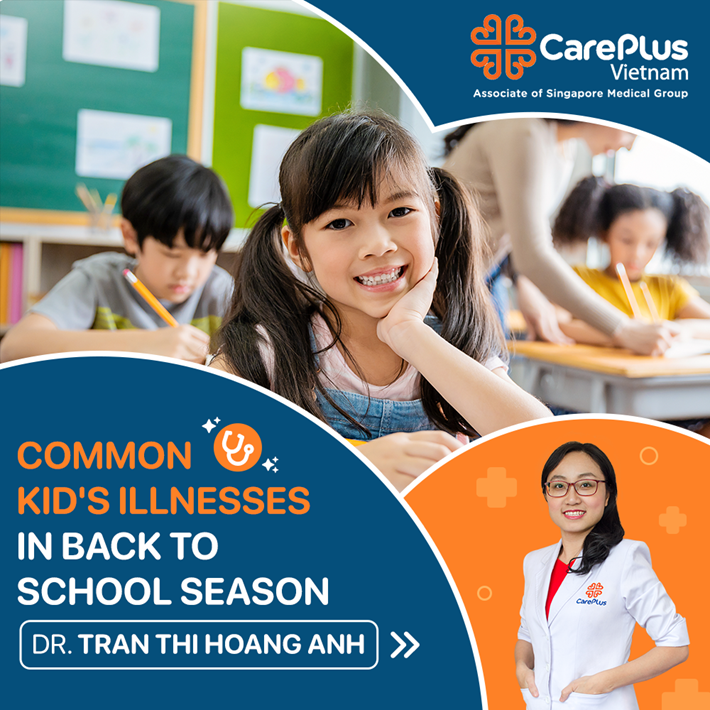Common kid's illnesses in back to school season
Children often get sick in the back-to-school season because they'll have a lot of interactions with friends, so they are more likely to be exposed to pathogens. In addition, this season's erratic weather changes with rain and sunshine create conditions for viruses and bacteria to grow.

9/8/2022 10:41:03 AM
Children's immune system is not yet fully developed, so the risk of getting sick is high. Especially in crowded and air-conditioned environments, pathogens will spread quickly. If children have habits such as sucking their fingers, biting their nails, picking up food, picking their noses, etc., the risk of infection is even greater.
Common illnesses :
Flu
Children will have cold-like symptoms such as high fever, cough, sore throat, headache, muscle aches, and pains. Young children and the elderly are greatly affected by this illness. Getting a flu shot each year is an effective way to prevent serious flu complications.
Digestive diseases
Children who don't wash their dirty hands after playing will easily get digestive diseases. In addition, eating street food also makes children suffer from food poisoning and digestive disorders.
Nasopharyngitis
Changing weather is a factor that causes respiratory viruses and bacteria to increase, so children are more susceptible to respiratory diseases such as nasopharyngitis, bronchiolitis, and pneumonia. In addition, Covid is also easy to raise again when children go back to school.
HFMD
Hand, foot, and mouth disease is common in young children, especially those under five years old. Hand, foot, and mouth disease rapidly spreads and easily becomes an epidemic. The peak of the illness is from March to May and from September to November every year. A small number of children can have severe complications if the signs of seriousness are not detected early and treated promptly.
Dengue fever
Dengue fever has not shown any signs of remission. Suppose the child has a fever, vomiting, abdominal pain, nosebleeds, bleeding teeth, vomiting blood, petechiae on the skin, cold and wet hands and feet, etc. In that case, it is necessary to take the child to the doctor to be detected and monitored for the aggravation of dengue fever.
HOW TO PREVENT BACK-TO-SCHOOL ILLNESSES:
-
Remind children to wash their hands often, especially after playing, eating, and using the bathroom.
-
Prepare adequate supplies for children's epidemic prevention: hand sanitizer gel, tissue, personal water bottle, and mask.
-
Children often stay up late in the summer, eating and sleeping irregularly. It is necessary to re-train to a logical biological clock, eat enough quality food, get enough sleep, and avoid staying late to ensure health for the new school year.
-
Maintain exercise and sports regimes. Physical activities will help the immune system work better.
-
Prevent mosquito bites in class and at home by wearing long-sleeved clothes, using natural mosquito repellent spray, cleaning up unused water containers, and killing larvae.
-
Get vaccinated to support the immune system, helping children avoid dangerous infections. Therefore, parents should check the vaccination record so that they do not forget the reminder shots such as flu, diphtheria, pertussis, measles, chickenpox, pneumonia, measles - mumps - rubella (MMR)
Check out CarePlus's Vaccination Packages for Children 0-6 months HERE